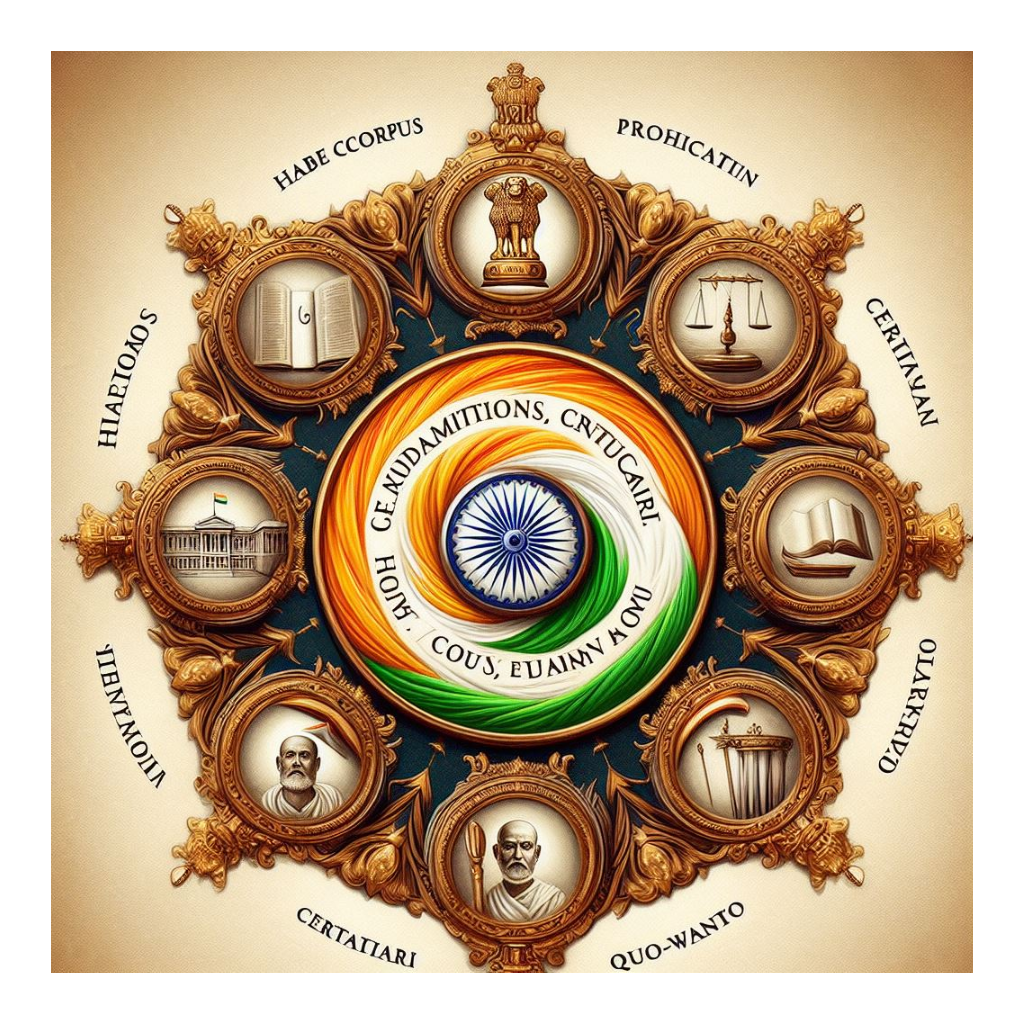
Crime and it's Elements
Crime is not just about unlawful actions; it is defined by key elements that give it structure and legal standing. This article examines these fundamental components—actus reus, mens rea, and legal causation—to help you understand how crimes are identified, categorized, and prosecuted within the justice system


The Five Jewels of Justice: Writs Under the Indian Constitution - A Deep Dive [Article 32 & 226 of Indian Constitution]
Frustrated with inaction from authorities? Facing an unfair court decision? Don't despair! The Indian Constitution equips you with powerful tools for justice – Writs. Dive into this comprehensive guide exploring Habeas Corpus, Mandamus, Prohibition, Certiorari, and Quo Warranto. Discover their history, legal principles, and landmark judgements that shaped their use. Empower yourself to safeguard your rights and navigate the legal system effectively!

Article 21 of the Indian Constitution: Safeguarding Life and Personal Liberty
Fearing arbitrary arrest or struggling to access basic necessities? Article 21 of the Indian Constitution stands guard. This fundamental right safeguards your life and liberty, demanding adherence to fair procedures before any restriction. Delve deeper and explore landmark cases, the concept of "procedure established by law," and the unwavering principles of natural justice that ensure your rights are protected.

Article 20 of the Indian Constitution: Safeguarding Justice and Rights
Discover the legal bulwark within Article 20 of the Indian Constitution, shielding individuals from unjust prosecutions. Delve into the doctrines of ex post facto laws, double jeopardy, and protection against self-incrimination, weaving the fabric of fairness in the criminal justice system. Unravel the constitutional principles that affirm the right to a fair trial and the presumption of innocence. Step into the realm where justice is fortified by constitutional guarantees.

Article 19 of Indian Constitution - Freedom Unwrapped: Exploring the Vibrant Tapestry of Expression in the Indian Constitution
Frustrated with potholes? Want to write a fiery critique of the government? India's Article 19(1)(a) guarantees your right to express yourself freely. But like your grandma's chili, freedom of speech has its limits. This article explores the various facets of this right, landmark cases that shaped it, and the importance of using it responsibly in a democracy.




